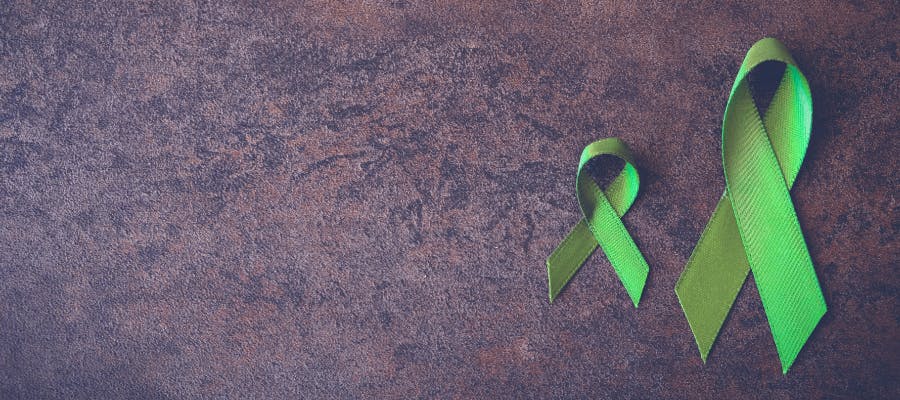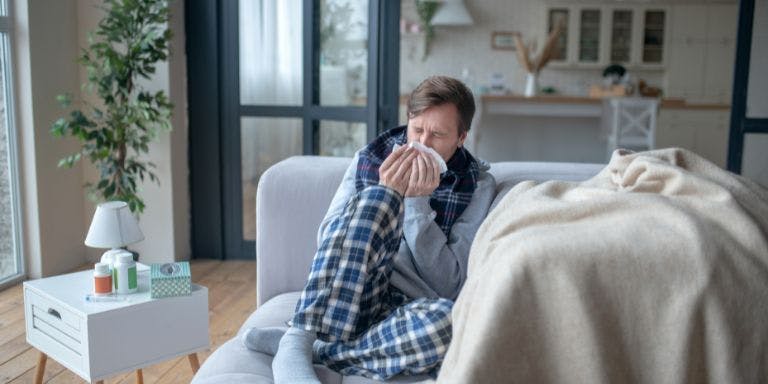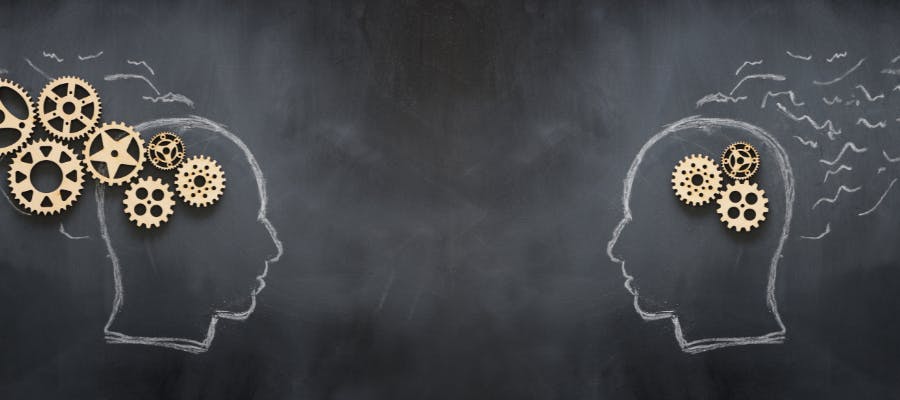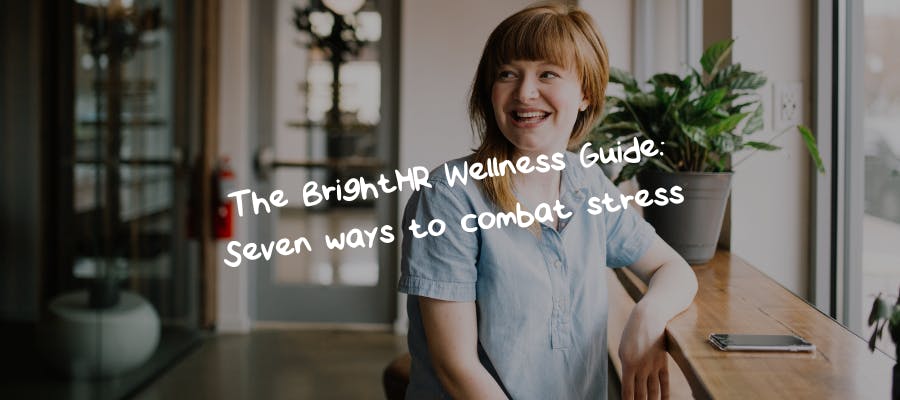First published on Sunday, May 16, 2021
Last updated on Sunday, May 16, 2021
Andy Reid is a war veteran, business owner, motivational speaker, and our inspirational BrightHR ambassador. To mark Mental Health Awareness Week, Andy talked to us about his personal experiences and gave advice on managing COVID-19 anxiety when returning to the workplace.
So Andy, can we can talk about what mental health means to you and how you’ve found the last year?
We need to be more open about mental health. Normally when I give motivational talks, whether that’s to kids in school or adults at corporate companies, it’s afterwards that people speak up. Kids type their questions or send an email if it’s a Zoom talk. And the adults wait until everyone’s having a coffee or a beer to come up to me and say, “I’m struggling in life, can I get some advice?” because they don’t want to stick their hand up in front of their colleagues and MDs.
A lot of guys in the army leave with PTSD because they didn’t ask for help while they were serving. It’s similar in the workplace. People are worried about the boss thinking, “well, if your head’s not in the game then maybe you’re not cut out for this job,” and then being overlooked for a promotion or put in another role, and it ending their career. But we need to break the stigma.
I’ve personally lost some friends and family during this last year due to COVID-19. And employers and employees need to remember that the people returning to work might not have had time to grieve. Government restrictions might have meant they couldn’t go to a friend’s funeral because it was ‘close family only’. Maybe they had COVID-19 themselves, which could have been serious or traumatic. People all around you are returning to work with a lot of weight on their shoulders. It’s why Mental Health Awareness Week is so important.
When you ask someone if they’re okay, don’t take their first answer. Pay attention to how they’re really responding, even if they’re saying “yeah, I’m fine.” If you have a hunch they’re putting on a front, you’re probably right. Ask them again, see if they want to come and sit down, have a brew, talk it through, offer advice. Especially if you’re the boss. It’s okay to talk about anxiety, depression, or bereavement in the workplace, and we need to instil this in people.
Fitness is not just about having a six pack and lifting up dumbbells. It supports your mental fitness, which is much more important. Going to the gym and keeping fit keeps me physically and mentally healthy. During lockdown I did the Keto diet, so I’ve not really eaten any carbs. It’s been difficult but I feel a lot better in myself.
When you come back from tour in the army, be it from Iraq or Afghanistan, you do something called decompression training. This is really common to help you learn how to reengage with normal life. It’s things like getting used to cars driving round, people walking, kids shouting, having some beers with people on the beach, going into shops, things you hadn’t done for six months.
People need to practice their own form of decompression training when returning to the workplace. There’s an element of this with people coming back to a work environment after working from home. Public transport and crowds might be intimidating. My advice is to do things gradually. I did a talk last week to 12 students and I think if I’d gone straight into an auditorium of 300 people, I reckon I would have been massively overwhelmed myself.
I’m all about setting immediate, middle-term and long-term goals. And that goes for getting back to normality gradually. Your long-term goal might be to be in the workplace full-time or feel safe enough to go on holiday abroad, but start small—you’re more likely to succeed if you build up to it and don’t just try and jump in the deep end. Goal-setting is a massive thing for getting people where they need to be.
I’m a motivational speaker, but I don’t jump out of bed every morning and say “the sun’s shining, it’s going to be an amazing day!” I’ve got a three-year-old who’s been in bed with us kicking me in the back all night, so I usually wake up thinking my back hurts. I get up, see what needs doing and face the challenges of that day—but I need a strong coffee first.
I look at some other motivational speakers and think “wow, they’re smashing life.” Particularly with other war veterans who’ve suffered similar injuries to me. But it’s not about comparison, it’s about getting inspired; seeing what 1% you can take from them and how you can implement it into your own life.
Stay calm if someone around you coughs—it doesn’t mean it’s COVID! I’m getting a train to London next week and I know it will be surreal. Last time I got on a train I was the only person on the carriage. But you have to remember that it’s hayfever season, and people get normal colds. So don’t panic if you hear someone clear their throat in the workplace.
I’m no Alan Titchmarsh, but being out in the garden helps me relax. I go and sit down at the bottom and look around and notice what’s changed in nature, like the daffodils have gone now and the bluebells have come out. I’ve got a couple of fruit trees that are starting to blossom. Nature’s changing all around us, and putting yourself in that environment for a short while can make all the difference. Get outdoors—the benefits are massive.
We need to stop taking photographs and enjoy the moment. Sometimes I’ll be out with my little boy and he’ll say, “daddy, have you taken a photograph?” and I’ll blink and say, “I’ve just taken one, mate.” People forget we’ve got a great SD card in our head and you can store these moments in your memory—it doesn’t need to be on Instagram to prove it happened.
I go to a place in Wales where there’s almost no phone signal, and it helps me get away from it all. That’s the problem with mobiles, we don’t even properly finish work anymore, we’re just contactable all the time. You have to be mindful to put it down, turn it off, get away from the screen. It doesn’t matter if you’re the boss or one of the workers, everyone needs to turn off from work or you’re at risk of burning out.
*I love Captain Tom’s quote, tomorrow is a good day. *And it will be. Whatever we’ve been through in the last 12 months, life is going to get better, so let’s look to a better, brighter future.
Visit Bright Wellbeing and Counselling to learn more about how you can support your staff’s mental health today.






